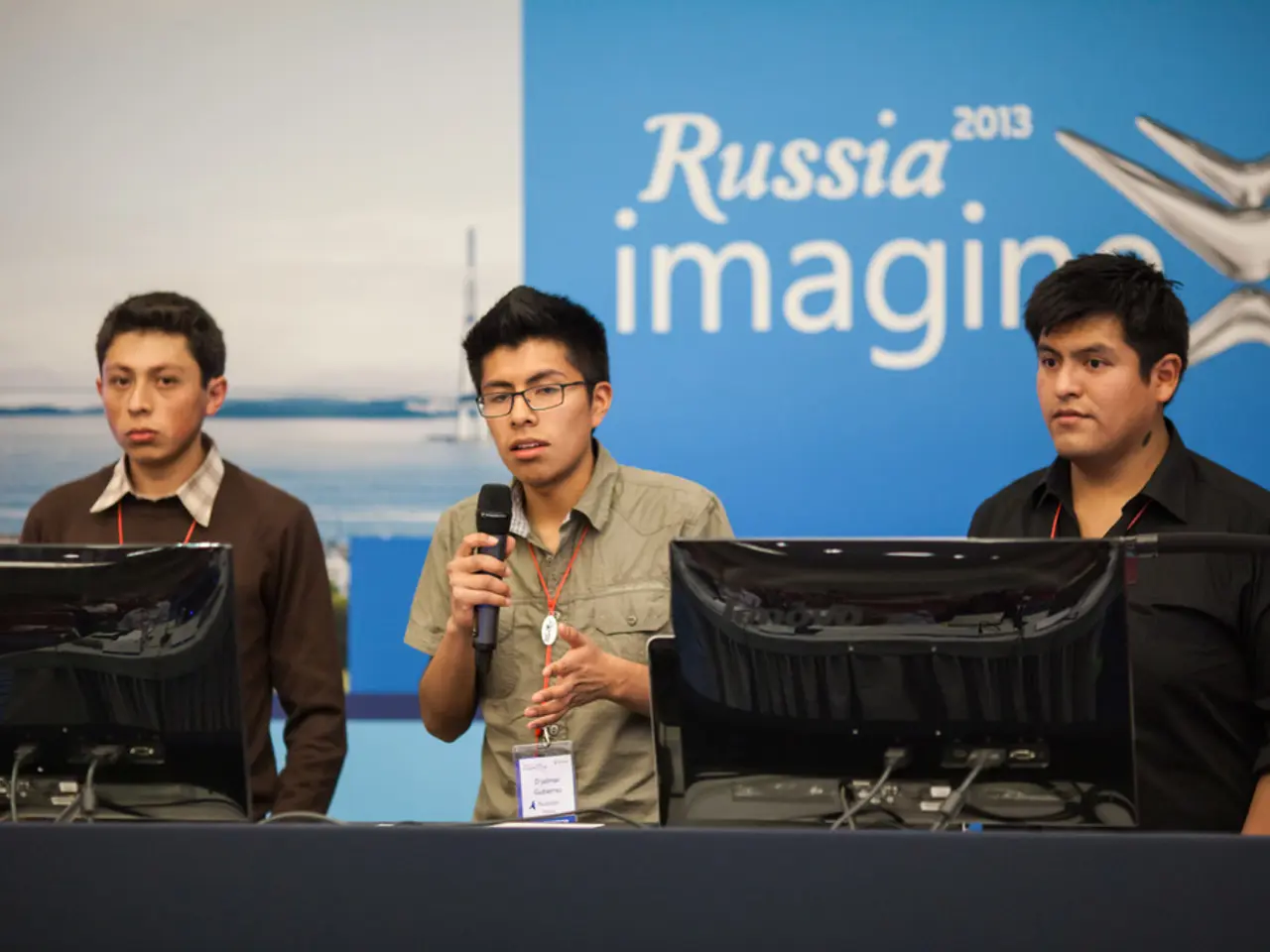China's DeepSeek AI Poses Significant Risk to American National Security According to U.S. House Panel
In the ongoing battle for technological supremacy, the United States is taking steps to curb the export of advanced AI technology to China. The latest focus of this crackdown is DeepSeek, an AI model developed by an unknown entity, with ties to China raising concerns.
According to reports, DeepSeek trained its low-cost models using data from OpenAI's ChatGPT, a move that has raised eyebrows. The House Select Committee on China has claimed that DeepSeek likely used "unlawful" distillation techniques for AI model training, a practice that has been criticized by OpenAI and Microsoft.
The committee's report also suggests that DeepSeek's founder, Liang Wenfeng, controls not only the AI model but also a hedge fund called High-Flyer Quant, which has ties to state-linked research labs in China. OpenAI told the committee that DeepSeek employees circumvented guardrails to extract reasoning outputs and used its models to grade model responses, filter, and transform training data.
The committee has concluded that DeepSeek poses a "profound threat" to U.S. national security. In response, they have recommended placing restrictions on the export of AI models to China and imposing prohibitions on federal agencies and contractors procuring AI models from China.
The proposed restrictions have potential impacts and controversies, mainly around national security, technological competitiveness, and global AI governance.
National Security Concerns The US aims to prevent advanced American AI chips and models from aiding China’s military and strategic AI development by restricting exports and closing loopholes that allow technology transfer through third countries. This reflects concerns about the balance of power and China’s potential to leverage superior AI for military uses.
Technological Self-Sufficiency in China Export controls, particularly on advanced chips and AI-related software, have pushed China to increase self-sufficiency in AI hardware and software development. This has narrowed the technology gap but also led to a limited dependency on US technology, which some argue has accelerated China’s own capabilities.
Economic and Industry Effects Restrictions on exports can disrupt global supply chains and affect companies involved both in the US and allied countries. There are efforts to coordinate export controls with allies and restrict adversaries from defense supply chains, potentially reshaping industry dynamics and alliances.
US Competitiveness and Standard Setting The US emphasizes controlling AI standards to maintain technological leadership globally. Restrictions are part of a broader strategy to ensure AI models and infrastructure worldwide remain based on American technology stacks. This can affect China’s adoption and development of AI tools like DeepSeek and their integration with global AI ecosystems.
Mixed Signals and Policy Uncertainty The US administration has moved back and forth on export restrictions, such as imposing and then rescinding limits on electronic design automation (EDA) software to China. This inconsistency creates uncertainty for companies and governments, impacting AI research and commercial development on both sides.
Controversies
Critics argue that export restrictions might inadvertently accelerate Chinese self-reliance in AI tech, making it harder for the US to maintain control or superiority in the long term. There is debate over whether such restrictions truly slow China’s AI advancement or just motivate it to innovate independently.
The US and China present competing AI governance models—US-driven multistakeholder, innovation-focused approaches versus China's state-controlled, alternative rules-based order. Export controls are part of this strategic contest, raising questions about fairness, collaboration, and the future of the international AI rulebook.
Restrictions risk straining relations not only between the US and China but also with allies and global supply chain partners. Coordination is challenging, and some allied countries or companies may resist restrictions due to economic interests.
Regarding DeepSeek specifically, although no direct mentions in the sources, it would likely face challenges similar to other Chinese AI models if caught in export restrictions limiting the technology transfer and use of American AI hardware or software foundational to such models.
The Trump administration's focus on DeepSeek is part of a broader effort to protect U.S. national security and maintain technological leadership. However, the effectiveness and long-term implications of these restrictions remain a topic of debate.
- The House Select Committee on China has expressed concern over DeepSeek, an AI model with links to China, claiming it likely used "unlawful" distillation techniques for AI model training, a practice that has been criticized by OpenAI and Microsoft.
- The proposed restrictions on the export of AI models to China, as a result of concerns about national security, may affect global AI governance, raising questions about fairness, collaboration, and the future of the international AI rulebook.
- The US is taking steps to prevent advanced AI technology from aiding China’s military and strategic AI development by restricting exports, a move aimed at maintaining the balance of power and preventing China from leveraging superior AI for military uses.
- The Trump administration's focus on DeepSeek is part of a broader effort to protect U.S. national security and maintain technological leadership, but the effectiveness and long-term implications of these restrictions remain a topic of debate.




